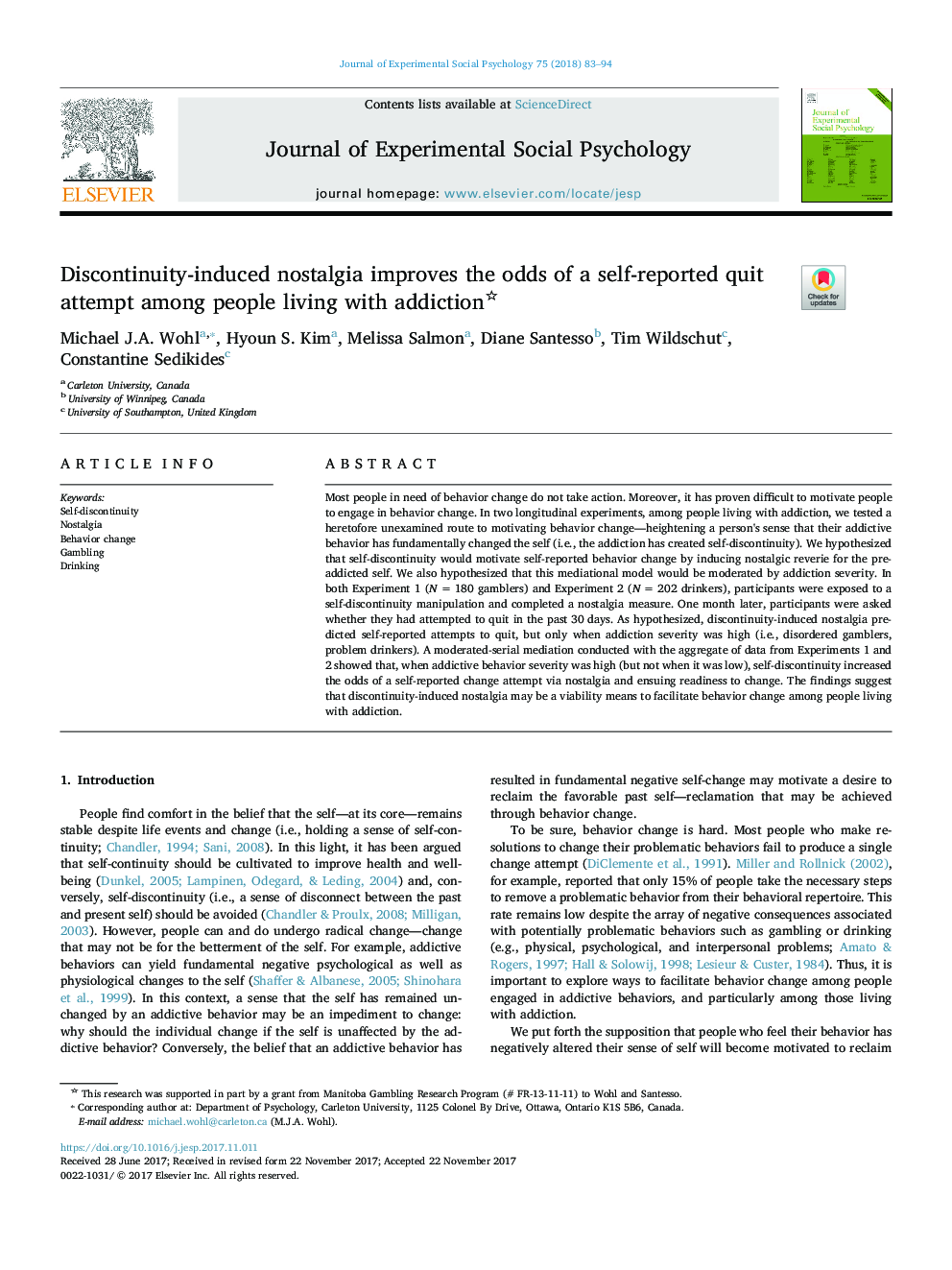| Article ID | Journal | Published Year | Pages | File Type |
|---|---|---|---|---|
| 7324242 | Journal of Experimental Social Psychology | 2018 | 12 Pages |
Abstract
Most people in need of behavior change do not take action. Moreover, it has proven difficult to motivate people to engage in behavior change. In two longitudinal experiments, among people living with addiction, we tested a heretofore unexamined route to motivating behavior change-heightening a person's sense that their addictive behavior has fundamentally changed the self (i.e., the addiction has created self-discontinuity). We hypothesized that self-discontinuity would motivate self-reported behavior change by inducing nostalgic reverie for the pre-addicted self. We also hypothesized that this mediational model would be moderated by addiction severity. In both Experiment 1 (NÂ =Â 180 gamblers) and Experiment 2 (NÂ =Â 202 drinkers), participants were exposed to a self-discontinuity manipulation and completed a nostalgia measure. One month later, participants were asked whether they had attempted to quit in the past 30Â days. As hypothesized, discontinuity-induced nostalgia predicted self-reported attempts to quit, but only when addiction severity was high (i.e., disordered gamblers, problem drinkers). A moderated-serial mediation conducted with the aggregate of data from Experiments 1 and 2 showed that, when addictive behavior severity was high (but not when it was low), self-discontinuity increased the odds of a self-reported change attempt via nostalgia and ensuing readiness to change. The findings suggest that discontinuity-induced nostalgia may be a viability means to facilitate behavior change among people living with addiction.
Related Topics
Life Sciences
Neuroscience
Behavioral Neuroscience
Authors
Michael J.A. Wohl, Hyoun S. Kim, Melissa Salmon, Diane Santesso, Tim Wildschut, Constantine Sedikides,
